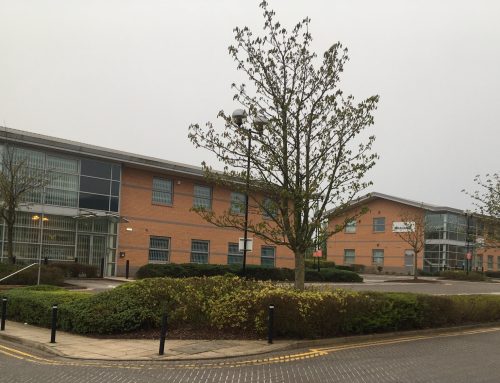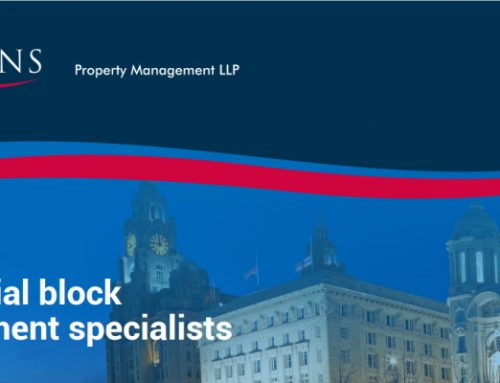As a leaseholder of a residential property within a block of apartments or flats, you may have the right, along with fellow leaseholders, to manage the residential block that you live within.
Normally, the Landlord will be responsible for the management of all communal areas and the provision of relevant services, such as a concierge, to ensure the smooth operation of a residential block. However, legislation that was passed in 2002 meant that leaseholder now have the right to take control of the block within which they live.
At Scanlans Property Management, we’ve been supporting leaseholders who want to exercise their right to manage for several years, guiding them through the process. Right to manage is an attractive prospect for many, and having an experienced property management agent on-board to help with legislation, accounting, maintenance, repairs and fee collection can make the process a lot smoother.
At Scanlans Property Management, we love to provide expert advice on block management and right to manage. As well as the many pros, there are certain cons and situations that mean that right to manage won’t be right for you.
What is right to manage?
Before 2002, the block management landscape was very much in favour of the Landlord. However, this tended to give too much power, meaning that in certain circumstances, Residential blocks were not being managed to a suitable or agreed standard. This changed when the Commonhold and Leasehold Reform Act 2002 was passed, meaning that, as long as certain criteria were passed, the leaseholders could take control of the management of the communal block, should they wish.
Right to manage means that the leaseholders take responsibility for ensuring communal parts of the block such as lifts are in working order, the concierge is in place, garden and common rooms are maintained, as well service fees are collected, health and safety legislation is adhered to and the company meets companies house legislation. So, there’s a fair bit of work to be undertaken. Because of the high volume of tasks and management, many right to manage companies will seek the support of a professional managing agent, such as Scanlans Property Management. With years of expertise, and regulated by ARMA, Scanlans support clients by taking the hassle and workload off them and managing all aspects of the residential block.
Can you right to manage?
Unfortunately, Right To manage doesn’t apply to every leaseholder. For instance, the leaseholder must be within a flat in a Residential block, so if you lease a house, you will not qualify for right to manage. Each Right To manage company can only be associated with one block of flats, so in a development where there are multiple blocks, a right to manage company will need to be formed for each. Furthermore, 66% of the flats need to have been let to tenants for an initial period of more than 21 years, and at least half of the tenants must be willing to form the right to manage company. As long as you meet all the criteria, you’ll be able to form a right to manage company. You don’t need the landlord’s permission; you just need to take the necessary formation steps to inform him and others of your intentions.
So, if you’re ready to form a right to manage company, you should be aware of the pros and cons of doing so
Right To Manage Pros & Advantages
No Excessive Service Charges
With right to manage, you have full control of all expenses. This means you can get the best deals, reducing the overall fees each tenant has to pay for the upkeep of the block.
Ensure Maintenance And Repairs Are Done In A Timely And Proper Manner
Full control also means that you, through the property managing agent, can ensure contractors are on-site to quickly do repairs, to an agreed standard.
Right To Manage Is Fair
All members form a right to manage company, with every leaseholder holding the same voting power as the other leaseholders within the company. This means that, during AGMs, voting takes place to decide various matters in a fair way.
Right To Manage Formation Is A Right
This means that there is no compensation due to the Landlord or Freeholder. As long as you satisfy the criteria, you have the right to manage. You will, however, be expected to cover any costs that the Landlord incurs as a result of the right to manage company takeover.
Right To Manage Cons & Disadvantages
You Will Be Responsible For Any Ongoing Disputes
Though some disputes may be as a result of poor landlord management, before you can properly be formed all service charge disputes must be settled. This can sometimes be a long process involving a tribunal.
Added Responsibility
As well as the management of the block, you’ll need to ensure you have proper accounting practices in place, in order to submit annual reports and collect fees. Fortunately, with a professional managing agent by your side, such as Scanlans Property Management, you can leave this to the experts to ensure compliance.
Cooperation Is Required Between Leaseholders
Like any company with a number of equal shareholders, cooperation is required in order for the smooth management of the company to take place. It’s a good idea to hold some initial meetings before you set up the right to manage company, to ensure there is a good bond and a shared vision for the management of the block.
Final Thoughts
Whilst it may be a daunting task to take over the management of your residential block, the rewards, such as reduced fees, more control on repairs and better management far outweigh the cons. Plus, with a professional managing agent by your side, you can be confident that you’ve got someone that has seen it all before to take control of the day-to-day, as well as the various health and safety and accounting legislation.
If you’re interested in exercising your Right To manage, get in touch with Scanlans today to see how we can support you through the formation process and ongoing management of your residential block.









[…] Right to Manage does come with both pros and cons. Read more about them here. […]